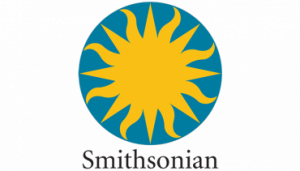Dibner Library Resident Scholar Program in the History of Science and Technology

Deadline: Normally, the deadline for applications for the Smithsonian Libraries Resident Scholar Programs is January 15 for appointments during the following academic year (September 1 through August 31). Due to the COVID-19 pandemic, however, we currently are not hosting fellows onsite and not accepting applications for the 2023 academic year (September 1, 2022 – August 31, 2023).
The Dibner Library Resident Scholar Program awards stipends of $3,500.00 per month for up to six months for individuals working on a topic relating to the history of science and technology who can make substantial use of the Dibner Library’s Special Collections. Doctoral students and post-doctoral scholars are welcome to apply.
The core of the holdings of the Dibner Library of the History of Science and Technology consists of approximately 10,000 rare books and manuscripts that were generously donated to the nation by the Burndy Library (founded by Bern Dibner) on the occasion of the nation's Bicentennial (1976). The collection has since grown to 35,000 rare books and 2,000 manuscript groups. The strengths of the Dibner Library’s holdings are in the fields of mathematics, astronomy, classical natural philosophy, theoretical physics (up to the early twentieth century), experimental physics (especially electricity and magnetism), engineering technology (from the Renaissance to the late nineteenth century), and scientific apparatus and instruments.
To learn more about the collection, please visit the Dibner Library's website. Our holdings are searchable via the Smithsonian Libraries' online catalog, SIRIS.
Scholars wanting to do research in other areas of SI Libraries' Special Collections should apply for the Baird Society Resident Scholar Program.
This award is supported by the family of Frances K. Dibner.
About the Award
To be competitive, the applicant should describe in detail how he/she intends to use the Special Collections of the Dibner Library. While the Libraries' extensive general collections may be used to support scholars' research, the proposed project must center on use of the Dibner Library's Special Collections.
The selection of scholars is based on:
- the need to consult specific Dibner Library holdings (application must include a bibliography of specific titles or a description of specific collections to be used).
- evidence of the applicant’s ability to carry out the proposed research (as outlined in letters of reference, reviews of previous work, publication record, etc.).
- the quality of the proposal (importance of topic, its originality and sophistication of approach, the feasibility of research objectives, and relevance to the collections).
We welcome international scholars. Applicants whose native language is not English must be able to demonstrate the ability to write and converse fluently in English. In addition, depending on the topic and specific research materials required, applicants should have an understanding of Latin or other foreign languages sufficient to make substantive use of Special Collections materials. English translations are not always available.
The residency must occur between September 1, 2020 and August 31, 2021, but does not have to be taken all at one time. Scholars are expected to be in residence at the Smithsonian full-time during their award tenures (plans to be away should be discussed in advance, if possible), to devote full-time effort to the research proposed, and to be regular users of the Dibner Library of the History of Science and Technology. The scholar will have access to the Smithsonian Libraries’ other collections and patron privileges such as interlibrary loan services. Scholars will be invited to address an informal colloquium of Smithsonian Institution staff and fellows on the topic of his or her research.
Stipends are not disbursed until after the scholar’s arrival but can be used for any purpose, including travel. No additional allowances are available. The Smithsonian Office of Fellowships and Internships (OFI) manages the award procedures.
In submitting an application for the program, the applicant does not incur any obligation to accept the award if selected.
If you have further questions about the Dibner Library Resident Scholar Program or the collection, email SILResidentScholars@si.edu, or call 202-633-3872.
How to Apply
Applications must be submitted through the Smithsonian Online Academic Appointment system (SOLAA). You will be required to create an account. You may review the SOLAA User’s Guide on their website to familiarize yourself with application procedures. Technical assistance is available via email from the SOLAA site.
In addition to completing the online application form, applicants must also provide the following to complete their application package on SOLAA:
Statement of research (not more than 1000 words, double-spaced), which should include the following:
- Full description of the research you plan to undertake at the Dibner Library.
- The importance of the project both in relation to the broader discipline and to your own research goals.
- Justification for conducting your research at the Smithsonian and using the Dibner Library’s Special Collections.
Selected bibliography of titles or collections in which are relevant to your research proposal.
Curriculum Vitae, reflecting your education, previous or current fellowships, grants, and awards, and a brief description of your research interests. Include undergraduate and graduate institutions, inclusive dates or study, areas of study, degrees earned, and major publications.
Two letters of reference (these will be uploaded directly by the referees).
Letters of reference:
You are responsible for contacting two individuals familiar with your scholarly work who will evaluate your proposal. You must provide each referee with a complete copy of your proposal sufficiently in advance for them to prepare a letter of support in time to meet the deadline. Include with your proposal a copy of the Referee Letter (see the pdf below) so that they are aware of SOLAA application procedures. You may monitor your application, including whether or not letters of reference have been submitted, via your SOLAA account. Letters of reference must be submitted by the deadline for the application to be considered complete.
